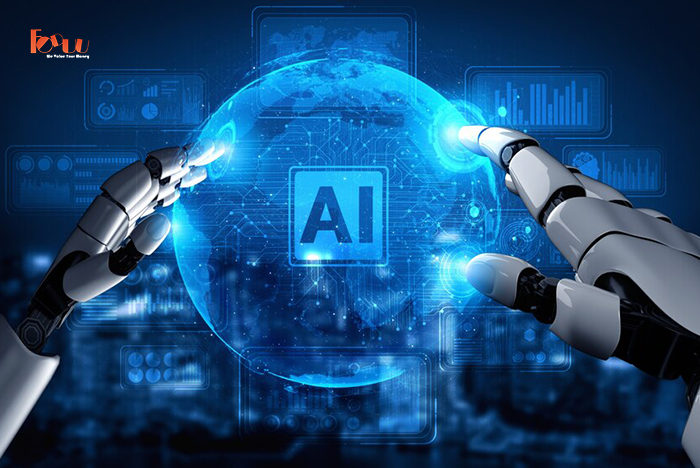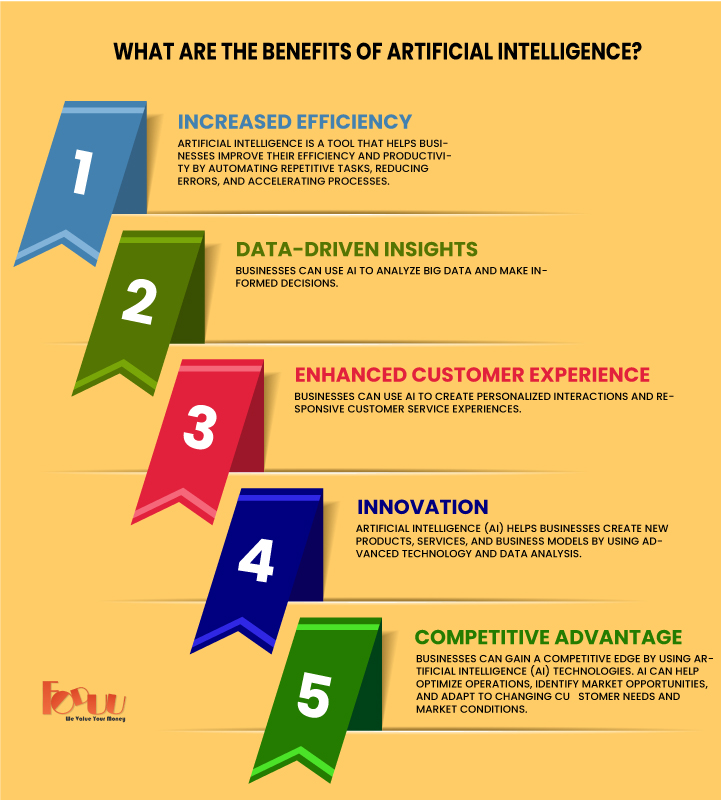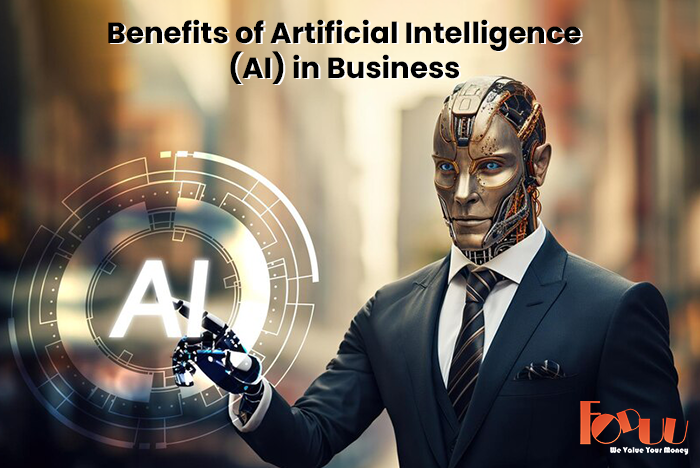The rise of Artificial Intelligence (AI) has profoundly impacted various facets of society, shaping industries, economies, and daily life.
Statistics reflect the exponential growth and widespread adoption of AI technologies worldwide. In 2020 alone, global spending on AI surged to approximately $50.1 billion, with forecasts projecting a doubling of this investment to $110 billion by 2024. This substantial financial commitment underscores the essential role that AI plays in modern economies.
The AI market size reflects this momentum, with a valuation of $62.35 billion in 2020, poised to skyrocket to an estimated $733.7 billion by 2027. Such staggering figures illustrate the vast potential and immense market demand driving the AI industry forward.
Beyond financial investments, AI adoption has become increasingly prevalent across diverse sectors. Business executives worldwide are embracing AI solutions, with 84% reporting implementation of AI technologies in their operations. Moreover, half of these executives affirm experiencing moderate to substantial benefits from their AI investments, highlighting the tangible advantages that AI brings to businesses. However, the rise of AI also raises pertinent societal considerations.
Forecasts predict significant job displacement due to AI automation, with an estimated 85 million jobs projected to be displaced by 2030. Yet, AI is also expected to create approximately 97 million new jobs in AI-related fields, underscoring the complex interplay between technological advancement and workforce evolution.
The impact of AI is particularly pronounced in key sectors such as healthcare, finance, manufacturing, customer service, and education. In healthcare, AI applications are revolutionizing diagnostics, drug discovery, and patient care, with the AI in healthcare market projected to reach $45.2 billion by 2026. Similarly, AI adoption in finance is forecasted to yield substantial cost savings, potentially amounting to $1 trillion by 2030. Moreover, AI's transformative potential extends to manufacturing, where it is poised to generate up to $3.7 trillion annually by 2025, primarily driven by predictive maintenance and quality control initiatives.
The progress of technology is being revolutionized by Artificial Intelligence. It copies human mental processes through clever systems, makes decisions based on data, and carries out intellectual tasks, revolutionizing interactions between humans and machines in various fields.
Key elements of Artificial Intelligence, including the advantages, disadvantages, and implementation across the industry, are detailed upon in this summary.
What is Artificial Intelligence (AI)?

AI stands for Artificial Intelligence. It's basically like teaching machines to think and act like humans. Cool, right? Picture your favorite sci-fi movie where robots talk, learn, and even crack jokes. That's AI in action!
Now, AI comes in all shapes and sizes, but the main idea is to make machines smart enough to do tasks that typically need human smarts. Think about your phone's virtual assistant, like Siri or Alexa. They're like little AI buddies that can answer questions, set reminders, and even tell you jokes!
But it's not just about chatting with your phone. AI helps us out in tons of other ways, too. Like those personalized recommendations you get on Netflix? Yep, that's AI analyzing your watching habits and suggesting what to binge-watch next!
Oh, and let's not forget about self-driving cars. They use AI to navigate the roads and make split-second decisions to keep us safe. Pretty amazing, huh?
Overall, AI is all about making machines smarter and more helpful. From diagnosing illnesses to predicting the weather, AI is everywhere, making our lives easier and more exciting. So next time you hear about AI, you'll know it's not just science fiction – it's the future, and it's already here!
The study of artificial intelligence falls under computer science, with a focus on building intelligent systems that can mimic human thought and behavior. These systems are designed to perform tasks that usually require human intervention. While original computer software operates based on a set of rules and instructions, artificial intelligence, also known as AI, can use past experiences, examine data, and form independent decisions.
AI encompasses a diverse range of technologies and methodologies, each serving a distinct purpose in achieving intelligent behavior. These include:
Machine Learning: Machine learning is a subset of AI that focuses on developing algorithms capable of learning from data, identifying patterns, and making predictions or decisions without explicit programming. Supervised learning, unsupervised learning, and reinforcement learning are common techniques employed in machine learning.
Natural Language Processing (NLP): NLP enables computers to understand, interpret, and generate human language in a way that facilitates communication between machines and humans. NLP is the engine behind programmes like text summarization, sentiment analysis, chatbots, virtual assistants, and language translation.
Computer Vision: Computer vision is the ability to understand and analyze visual data from photos or videos. AI-powered computer vision systems are capable of recognizing objects, faces, gestures, and scenes, which has enabled many applications such as image recognition, object detection, autonomous vehicles, and medical imaging analysis.
Robotics: AI and mechanical engineering are combined in robotics to develop intelligent machines that can sense their surroundings, interact with them, and carry out manual activities. Robots with AI capabilities are used in many industries, such as manufacturing, healthcare, agriculture, and exploration.
Expert Systems: AI-powered expert systems replicate the decision-making abilities of human experts with knowledge bases, inference engines, and rule-based reasoning to offer expert-level advice, diagnoses, or recommendations.
Deep Learning: Deep learning algorithms are very effective in recognizing images and speech, processing natural language, and learning through reinforcement. These algorithms excel at complex tasks and can provide accurate results. In simpler terms, they can understand and learn from data and provide valuable insights.
How Does AI Work?
Artificial intelligence (AI) systems process data, find patterns, and make predictions. They use algorithms and computer models. Machine learning is a type of AI that allows computers to learn from data without explicit programming.
There are 3 types of Machine Learning algorithms: Supervised, Unsupervised, and Reinforcement.
Supervised learning algorithms learn from labeled data, unsupervised learning algorithms discover hidden patterns in unlabeled data, and reinforcement learning algorithms improve performance through trial and error.
Deep learning is a form of neural network-based machine learning that enables complex pattern recognition and representation learning. It has revolutionized AI.
How Does AI Help Improve Business Processes?
AI offers numerous benefits for businesses by enhancing efficiency, driving innovation, and enabling data-driven decision-making. Some ways AI improves business processes include:
1. Automation: Automation simplifies workflows and saves time by taking care of repetitive tasks. This leads to cost savings and increased productivity.
2. Predictive Analytics: Predictive analytics helps businesses to expect customer behaviour, optimize resource allocation, and forecast future trends. This enables better decision-making and strategic planning.
3. Personalization: Personalization allows businesses to create personalized customer experiences through targeted recommendations, tailored marketing campaigns, and customized products or services. This boosts customer satisfaction and loyalty.
4. Process Optimization: Our service improves your business processes by identifying any inefficiencies, analyzing data, and suggesting ways to make your operations more effective. This leads to smoother operations and a stronger competitive position.
5. Risk Management: AI helps businesses in identifying risks, detecting fraud, and ensuring compliance by examining vast amounts of information for abnormalities. By doing so, it reduces financial losses and prevents regulatory violations.
What are the Benefits of Artificial Intelligence?

The benefits of artificial intelligence extend across various aspects of business operations, driving efficiency, innovation, and competitive advantage. Let's explore each of these benefits in more detail:
1. Increased Efficiency: Artificial Intelligence is a tool that helps businesses improve their efficiency and productivity by automating repetitive tasks, reducing errors, and accelerating processes. This means that businesses can delegate routine tasks to AI-powered systems, freeing up human resources to focus on more important activities that need creativity, problem-solving, and strategic thinking. AI-driven automation can be used for tasks such as data entry, customer support, and supply chain management. By using AI, businesses can operate more efficiently at all levels, which can lead to greater success.
2. Data-Driven Insights: Businesses can use AI to analyze big data and make informed decisions. AI can detect hidden patterns, trends, and correlations in complex datasets using advanced analytics techniques such as machine learning and predictive modeling. This helps businesses anticipate market trends, understand customer preferences, optimize resource allocation, and effectively mitigate risks. By using data-driven decision-making, facilitated by AI, businesses can achieve more successful outcomes and gain a competitive advantage. From marketing campaigns to product development strategies, AI helps businesses make better decisions.
3. Enhanced Customer Experience: Businesses can use AI to create personalized interactions and responsive customer service experiences. AI-powered chatbots and virtual assistants, using natural language processing (NLP) and sentiment analysis techniques, can engage with customers in real-time, address inquiries, and resolve issues while providing personalized recommendations. AI-driven recommendation systems analyze customer behavior and preferences to deliver relevant content, products, and services, ultimately enhancing the overall customer experience and driving customer retention and loyalty.
4. Innovation: Artificial Intelligence (AI) helps businesses create new products, services, and business models by using advanced technology and data analysis. AI systems like deep learning and neural networks can generate innovative ideas, optimize processes and find new insights that lead to new advances. By using AI technology, companies can create autonomous vehicles, predictive maintenance solutions, and personalized healthcare treatments that can disrupt traditional industries and help businesses grow.
5. Competitive Advantage: Businesses can gain a competitive edge by using Artificial Intelligence (AI) technologies. AI can help optimize operations, identify market opportunities, and adapt to changing customer needs and market conditions. By automating processes, personalizing experiences, and innovating solutions, businesses can stand out from their competitors, capture more customers, and stay up-to-date with industry trends. They can save costs, improve customer satisfaction, and speed up their time-to-market.
AI-driven competitive advantages are essential for businesses in today's dynamic and competitive business landscape.
What are the Disadvantages of Artificial Intelligence?
While artificial intelligence (AI) offers many benefits, it also presents several potential disadvantages and challenges that businesses and society must address. Some of the main drawbacks of artificial intelligence are as follows:
1. Ethical Concerns: AI systems can replicate biases present in the data they are trained on, leading to unfair or prejudiced outcomes. Moreover, AI poses ethical questions concerning privacy, transparency, accountability, and the potential misuse of AI-powered technologies for surveillance, manipulation, or social control. Addressing these ethical concerns is crucial to ensure that AI is developed and deployed responsibly. It is essential to keep the language simple and straightforward, using everyday vocabulary and the active voice to increase clarity. The most significant information should be presented first, and sentences should be kept short and concise. Long, complicated sentences can be overwhelming and make it difficult to understand the main point of the message.
2. Job Displacement: AI automation has the potential to disrupt job markets and displace workers in certain industries. Jobs that involve repetitive tasks, such as data entry, customer service, and manual labor, may no longer need human workers, leading to job loss or the need for retraining programs.
3. Complexity: Organizations that want to adopt AI solutions face significant challenges due to the complexity of AI technologies and the shortage of skilled professionals in data science, machine learning, and software engineering. Developing and deploying AI systems requires specialized expertise and ongoing support. Moreover, AI systems may be difficult to interpret, debug, and maintain, which makes the need for expertise even more crucial.
4. Security Risks: AI systems are at risk of being targeted by security threats such as data breaches, adversarial attacks, and manipulation of the AI-generated content. This is because attackers can take advantage of the vulnerabilities that exist in AI algorithms or datasets, which can result in unintended consequences or security breaches. Therefore, it is crucial to ensure that AI systems are secure and maintain their integrity to avoid these risks.
5. Dependency: AI systems can cause errors and unintended effects if they are hard relied upon without human oversight or intervention. These systems may encounter situations they are not equipped to handle, and that's where human intervention becomes crucial. Ensuring safety, reliability, and ethical behavior necessitates maintaining human control over AI systems. Therefore, it's essential to maintain human oversight to prevent overconfidence in AI systems.
6. Bias and Fairness: AI algorithms can unintentionally magnify existing biases in the data they use, which can result in unjust outcomes. These biases can originate from historical data, societal norms, or algorithm design. It is important to address these biases and promote fairness in AI to ensure that vulnerable populations are not harmed and that everyone is treated equitably.
7. Lack of Transparency: AI algorithms, like deep learning models, are often called "black boxes" because they can be hard to interpret or explain. This lack of transparency can cause trust, accountability, and regulatory compliance issues for organizations and policymakers who want to understand and regulate AI technology.
Benefits of Artificial Intelligence in Various Industries:
Artificial Intelligence has transformative applications across industries, including:
1. Healthcare: AI assists in medical diagnosis, personalized treatment planning, drug discovery, and patient monitoring, improving healthcare outcomes and efficiency.
2. Finance: AI powers fraud detection, risk assessment, algorithmic trading, and customer service automation in the financial sector, enhancing security and operational efficiency.
3. Retail: AI enables personalized recommendations, demand forecasting, inventory management, and supply chain optimization, enhancing customer experiences and driving sales.
4. Manufacturing: AI optimizes production processes, predictive maintenance, quality control, and supply chain management in manufacturing, increasing efficiency and reducing costs.
5. Transportation: AI facilitates route optimization, autonomous vehicles, traffic management, and predictive maintenance in transportation, improving safety and efficiency.
In conclusion, Artificial Intelligence holds immense promise for businesses and society, offering opportunities for innovation, efficiency, and growth across various domains. While AI development offers numerous benefits, it is essential to address potential drawbacks such as ethical concerns, job displacement, and security risks to ensure responsible AI development and deployment. By harnessing the power of AI responsibly and ethically, businesses can unlock new possibilities and drive positive outcomes for customers, employees, and stakeholders alike.
Looking for an AI Development Company India for your AI and Machine Learning web and app development solutions.? Contact FODUU for AI & ML development services.










